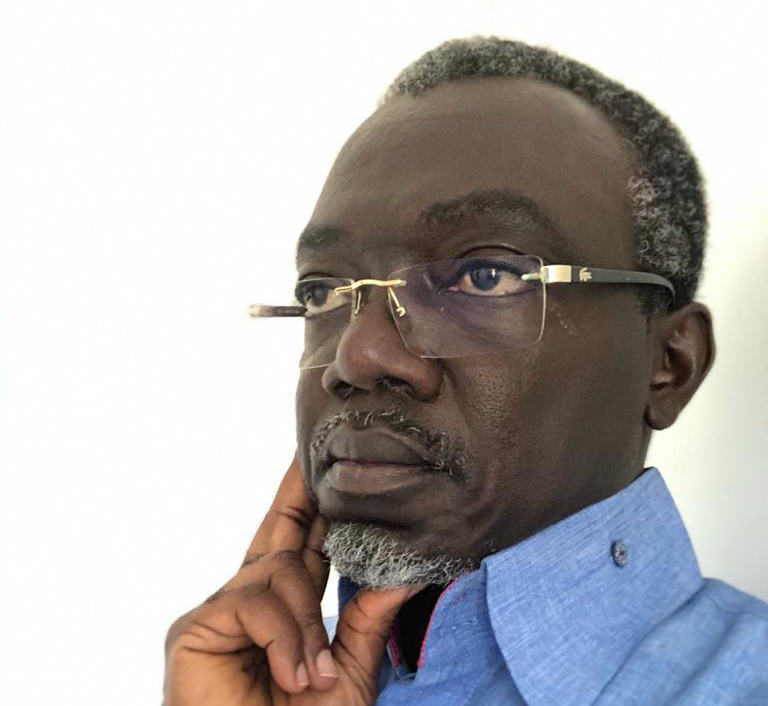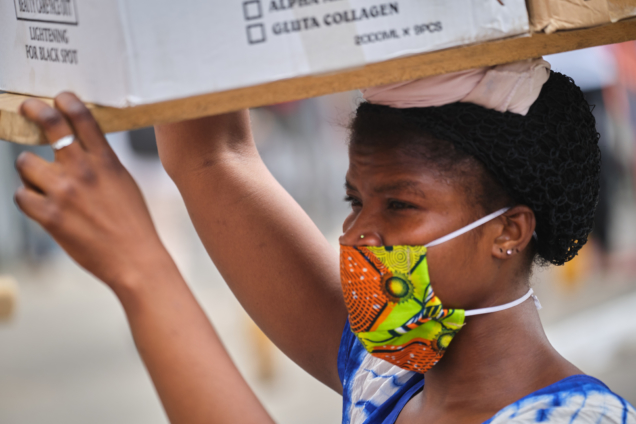On June 27th 2020 MarketWatch reported that the global disposable face mask market size was anticipated to reach ¢23.81 billion by 2027.
On June 30th, Goldman Sachs released an extensive economic analysis of why the wearing of a mask is a must. By studying the link between coronavirus infections and mask mandates in US states and overseas, the reputable global investment bank estimated a national directive could cut the daily growth rate of confirmed cases by one percentage point to just 0.6%.
The reduction according to them could prevent the need for lockdowns that could wipe 5% off US GDP. The implication of not wearing a mask and its associated health and socio-economic consequences are no different in emerging and developing economies. The unfortunate coronavirus(SAR-COV-2) and associated COVID-19 pandemic has however resulted in the emergence of a face protection mask (FPM) in industry.
In Africa, the rapidly evolving sector could contribute approximately $1.5 billion annually into the continents’ economy. This is according to supply chain and industrialisation expert , Professor Douglas Boateng.
“This high demand during these unprecedented times is largely a result of the growing need for personal protective equipment (PPE) spurred on by the global Coronavirus pandemic as well as the latest mandate by the governments regarding the use of face protection masks at all times in especially public places,” Boateng said.
US Presidential advisors Dr Fauchi and Dr Birx, Director General of WHO, Dr Tedros Adhanom Ghebreyesus, leading scientists including UCSF Professor of Epidemiology & biostatistics George Rutherford, Ghana’ Presidential advisor on health Dr Nsiah Asare, Harvard Global Heath Institute’ Dr Ashish Jha, Professor Ampofo from Noguchi Institute for Medical Research, University of Massachusetts’ Professor Erin Bromage, George Washington University’s Professor Jonathan Renier as well as Prof Stephen H. Powis, national medical director for England, in the National Health Service, US’ CDC and world leaders including President Ramaphosa, Premier Angela Merkel and President Nana Akufo-Addo continue to encourage the wearing of face masks to reduce the risk of spreading and contracting the Coronavirus.
Many European countries according to Goldman Sachs now have mask mandates. In most of East Asia, it is generally acceptable to wear masks whilst sick or during an outbreak of a disease. The acceptance of masks as a means to minimise the potential spread of a disease in Africa is also rapidly changing.
According to Prof Boateng, widening demand for quality reusable cloth-based face protection masks (FPM) over the next decade will open up opportunities for the local development and supply of these essential PPE.
“Every crisis presents opportunities for visionary business and political leaders. SAR-COV-2 cases in Ghana and across the globe have prompted the need for an increased supply of FPMs as a means to prevent the spread and reduce the number of infections. This growing need to contain the virus as well as rising health awareness among Ghanaians is driving market growth in this area,” he said.
A new report by Grand View Research indicated that a global compound annual growth rate of 53% is expected over the forecast period. This prediction could have a significant impact on the opportunities that are available to the Ghanaian textile industry as well as smaller and medium sized enterprises operating in this sector.
With the FPM industry expected to more than double over the next 10 years, Boateng has urged African businesses to embrace the opportunities that have emerged and lead the way in FPM production and supply in the region.
“With a share of 33.9% in 2019, the Asia Pacific region currently dominates the disposable face mask market. The market is also controlled by a few key players. These include the likes of Uvex Safety Group, Polison Corporation, Kimberley Clark Corporation, RPB Safety LLC, Mine Safety Appliances (MSA), Moldex, Uvex, KOWA, and SAS Safety Corp.
"Alpha Pro Tech, 3M Company, Honeywell, Bullard, Delta Plus Group, The Gerson Company, ILC Dover, Intech Safety Private Limited, and Shigematsu Works Company Limited. Via various agents, many of these companies export their FPM into Ghana. Ghanaian businesses should be looking to gain some of this market share, Boateng said.
“The latest statistics from amongst others, the World population review put Africa’s population at 1.1 billion people. At least 50% of the population require FPMs. This means that over 550 million Africans are in need of FPMs. Each of these 550 million people will need at least 3 masks, equating to approximately, 1.55 billion masks. With an average two-layered cloth-based FPM costing $1 USD, the market for these PPE could reach $1.55 billion annually,” he added.
According to Boateng, enhanced FPM production and supply could not only have a direct impact on the region textile industry , but could also have significant spin offs in other areas.
“Hundreds of thousands of jobs could be created through initiatives focused on FPM and other PPE production. Women and the youth could particularly benefit from access to jobs in the emerging sector and further opportunities for self-employment could also arise,” he said.
Commenting on the growing opportunities in this sector, the Secretary-General of the African Continental Free Trade Area Wamkele Mene noted that demand for FPM could have a significant impact on economic development and sectoral growth in the coming years.
“Äs more and more people become attuned to the need for FPMs, opportunities for regional production and distribution of disposable as well as reusable face masks will increase. The AfCFTA is in full support of the use of FPMs to reduce the spread of the Coronavirus and is mindful of the impact that growth in this sector could have for regional wide job creation and economic empowerment,” Secretary-General Wamkele said.
While opportunities in the sector look promising, Boateng warned that the medium to long term economic sustainability of the FPM industry is dependent on African Government support and policy development.
“There must be a strategy and implementation plan for the entire supply chain. AfCFTA and Africa governments must initially protect the sector to ensure there is no dumping and price undercutting by suppliers from outside the continent. Through innovative subsidies there could even be guaranteed off takes for schools and universities, among others,” he concluded.
****

Professor Douglas Boateng is an international chartered director and Africa’s first-ever appointed Professor Extraordinaire for Industrialisation and Supply Chain Governance.

Wamkele Mene has worked as the Head of Mission to the World Trade Organisation for South Africa. He was South Africa’s Chief Negotiator in the African Continental Free Trade Area Negotiations.
Latest Stories
-
Eliminating betting tax, e-levy are the positives of 2025 budget – NPP
5 seconds -
How AiScarecrow Technologies supports cereal farmers with crop protection
9 minutes -
Decentralise mining licensing – Gwira Paramount Chief tells government
10 minutes -
Nii Ayikwei Kakalor I installed new Kokomlemle Mantse
17 minutes -
Kokomlemle; from frog swamp to media powerhouse
23 minutes -
Unlocking women’s economic potential through tailored financial solutions
25 minutes -
NDC members are visibly emboldened to engage in galamsey – Ahiagbah claims
36 minutes -
‘We need to revamp MASLOC’
48 minutes -
Over-dependence on T-Bills for gov’t financing unsustainable – Standard Bank Group
1 hour -
South African Tourism Minister visits Ghana to strengthen bilateral tourism relations
1 hour -
Supreme Court to rule on Akwatia MP’s injunction case on April 30
2 hours -
Russia says sanctions must be lifted before Ukraine maritime ceasefire can start
2 hours -
Peter Amewu released after arrest over sky train scandal
2 hours -
Adu-Boahene and wife sue AG and EOCO over GH¢200m bail condition
2 hours -
Fuel stations to operate 24 hours, NPA boss calls for security agencies’ support
2 hours

